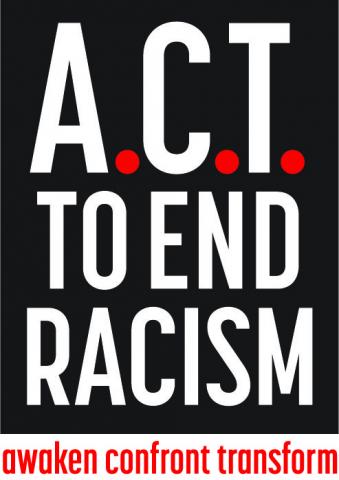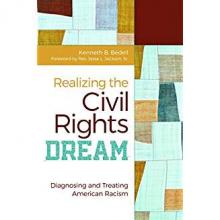Why ACT Now! to End Racism?

"On April 3-5, 2018 the National Council of the Churches of Christ in the USA (NCC) and our partners will gather in Washington, D.C. for a historic event to launch its Truth and Racial Justice Initiative. As we mark 50 years since the assassination of Rev. Dr. Martin Luther King Jr. on April 4, 1968, we will commit to do our part to eradicate the entrenched racism that grips the United States and paralyzes our ability to see every human being as equal." (From the rally website)
Why Raise the Issue of Racism?
Rev. Dr. Martin Luther King, Jr was assassinated 50 years ago on April 4, 1958. Five weeks earlier the Kerner Commission, established by President Johnson, released a report that documented inequality in America and the role of racism. With that study as a baseline the Eisenhower Foundation released an update that documents the changes in 50 years. In short, poverty is greater, inequity has increased, segregation continues, and racism is unabated. We have made little progress and in many areas things are worse now than they were 50 years ago.
Why is National Council of Churches (NCC) Leading?
In the 1950s and 1960s people of faith articulated the call to action for America to address racism. Since then there have been organizations and individuals committed to the cause of ending racism, but today racism is seldom directly addressed. As they did in the 1960, faith traditions have an important message for a nation immersed in racism.
The NCC tradition of anti-racism includes judicial activism, promoting legislation, clarifying issues through issuing statements, and much more.
What is the Role of Students?
Many of the leaders of the Movement in the 1960s were young people. Dr. King was not yet 40 years old when he was assassinated. On that day John Lewis was just 27 and Jesse Jackson, Sr. was only 26. Thousands of college students volunteered to work with the Student Nonviolent Coordinating Committee and other organizations to bring about change.
Today students can play an important role in defining and working toward the kind of nation that they desire for themselves and all Americans. This includes becoming sensitive to racism in themselves and their surroundings, pointing out racism in institutions including schools and colleges, and working for changes in laws and institutions that currently privilege people with white skin.
What Can Communities of Faith Do?
Just as the civil rights movement in the 1960 had a political agenda and resulted in new laws, racism today requires many responses including political action. Churches and other communities of faith that are progressive and those that are conservative have a variety of political perspectives. Too many faith communities have tried to avoid dealing with racism because of a fear of political controversy. Yet, the personal relationships in these communities today can be the foundation for honest engagement about racism that begins with dialogue about shared religious values and results in shared commitment to personal change and political action.
How Can You Join the NCC Initiative?
1) You can join the rally on the National Mall on April 4, 2018 to demonstrate with your presence that you share the belief that it is time to take on the difficult task of ending racism.
2) You can organize your church, campus ministry, or other organization to support the launch of the Truth and Racial Justice Initiative by joining 500 other groups in contributing $500 to pay the bills for the rally.
3) If you can't attend the rally in DC, you can participate in the "virtual rally" through social media. Start today by participating in the discussion on Twitter, Facebook, or Instagram. Begin by downloading the rally social media kit.




 Contact Us
Contact Us